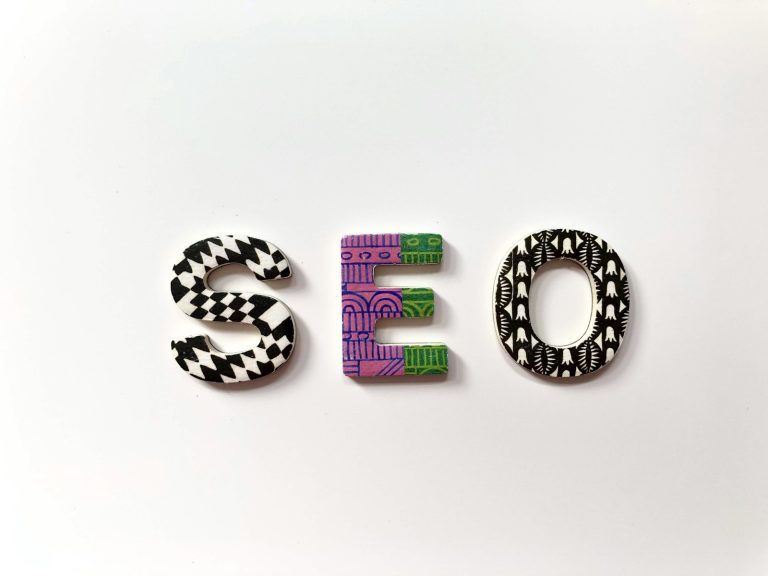Introduction
Welcome to your future in SEO. “Top 2024 SEO tricks and tips” isn’t about chasing algorithms, it’s about mastering an AI-driven eCommerce world. As the pace of technology accelerates, businesses must leverage automation and deep learning to serve data-rich, personalized experiences. The scope of embedding AI in your SEO strategy opens infinite possibilities – and I’m here to guide you. As an expert in SEO, AI, Automation, eCommerce, Business Intelligence, and B2B, I can attest to the transformative power of these futuristic SEO practices. Now, it’s time to explore the top 10 future-proof strategies that will redefine SEO by 2024. Embark on this journey with me!
How will AI shape the future of SEO?
AI is rapidly transforming the SEO landscape, making it more dynamic and intelligent. But how will it transition the world of SEO by 2024?
Understanding the role of AI in SEO
Artificial Intelligence is poised to revolutionize SEO with its amazing potential to process huge data and draw meaningful insights. It’s not just about more advanced algorithms; AI can analyze user interactions and patterns, enhancing the precision of search results. Google’s AI algorithm, RankBrain, exemplifies the future of SEO with its ability to decipher user intent and provide apt search results.
Predicting user behavior with AI
Predicting user behavior permits marketers to offer personalized services, channelling higher brand engagement. AI algorithms can analyze previous search behavior, purchase history, content interaction, and even dwell time to predict future behavior. This helps formulate accurate SEO strategies that meet user needs.
Enhancing content creation and optimization with AI
Automated content creation and optimization are increasingly becoming part of a progressive SEO strategy. AI tools such as Wordstream simplify keyword research, content optimization, and tracking performance, helping content creators focus on delivering value-packed, resonant content to their audiences. By 2024, utilizing AI for content creation and optimization will be one of the top SEO tricks and tips.
What are the potential effects of automation on SEO?
Automation and SEO are two facets of the 21st-century digital marketing, but how do they intertwine and impact the future of SEO?
The need for SEO automation
Modern SEO strategies require handling massive data and repetitive tasks, such as keyword research, backlink analysis, and ranking tracking. Automating these processes increase efficiency and precision, freeing employees to focus on strategic tasks like content creation.
The role of automation tools in SEO
Various tools, for instance, SEMrush and Ahrefs, help automate SEO tasks, saving time and increasing accuracy. These tools enable businesses to conduct comprehensive keyword research, track rankings, identify backlink opportunities, and provide competitor insights, giving them the competitive edge.
How automation accelerates SEO Tricks and Tips processes
Automation undeniably accelerates the traditionally time-consuming SEO processes like content audits, link building, and technical SEO updates. It improves accuracy, maintains consistency, and enables real-time responses, propelling businesses towards improved search engine rankings and online visibility.
With the rapid strides in technology, mastering SEO automation should be high on the list of top 2024 SEO tricks and tips. By wisely leveraging these tools, businesses can gain a significant competitive advantage in the online space.
What are the potential effects of automation on SEO?
As we continue speeding forward into a digitally-powered future, one of the areas experiencing exponential growth is Search Engine Optimization (SEO). With the constant changes in search engine algorithms and user behavior patterns, staying on top of SEO trends is a challenging task; a task made simpler with automation. (source)
The need for SEO automation
The demand for SEO automation is higher than ever. Manual SEO processes can be time-consuming and error-prone. Automation can speed up these processes, increase accuracy, and free up time to focus more on strategy and less on mundane tasks. This shift towards automation is not only a trend but a necessity for businesses looking to stay ahead.
The role of automation tools in SEO
Automation tools play a crucial role in modern SEO strategies. They provide insights about your website performance, competition analysis, keyword optimization, link building, and even content creation. (source) Essentially, they take on the task of data gathering and analytic measurements, leaving the creative and strategic tasks to human specialists.
How automation accelerates SEO processes
Automation certainly has the potential to revolutionize SEO processes. Automated SEO tools can quickly scan websites for technical issues, track changes in ranking, provide SEO audits, and generate reports in a fraction of the time it would take a human to do the same tasks. This faster turnaround time leads to more streamlined decision-making and quicker implementation of SEO adjustments.
How to leverage data-rich personalized experiences in SEO?
As SEO is becoming more data-driven, personalization is playing a larger role in strategies for digital transformation. In 2024, one of the top SEO tricks and tips is leveraging data-rich personalized experiences to build an engaging, relevant, and successful SEO strategy.
The importance of personalization in SEO
The digital landscape is becoming more competitive and crowded. As a result, marketers are continuously seeking ways to distinguish their web experiences from the competition. Personalization, delivering specific content to users based on their behavior or characteristics, can help build more meaningful and enduring relationships with customers. A study by Oneupweb shows that personalized experiences can increase engagement rates by up to 20%.
Using data analytics for personalization
Data analytics is essential in delivering personalized experiences. By using advanced analytics, you can gain valuable insights into your audience’s behavior, needs, and preferences, which can guide your content creation and optimization efforts. Tools like Google Analytics and Adobe Analytics can provide granular, real-time insights that enable you to deliver a personalized SEO strategy with measurable results.
Optimizing the consumer journey with personalized SEO
Optimizing the consumer journey with personalized SEO is essential in the current digital climate. By tailoring your content and strategies to the unique needs and preferences of your audience, you can deliver an optimized shopping experience that drives conversions and revenue growth. Tools like Google’s URL Inspection Tool can provide detailed insights into user behavior, enabling you to refine your strategies and deliver more personalized, engaging, and effective SEO experiences.
What is the significance of eCommerce in SEO for the future?
eCommerce has transformed how businesses operate, resulting in a dramatic shift in how SEO is utilized. SEO for eCommerce isn’t merely about gaining high ranks on search engines; it’s about attracting potential customers, directing them to your online store, and converting them into buyers. It represents a symbiotic relationship where one boosts the other.
The connection between eCommerce and SEO
In today’s digitally-driven market, the connection between eCommerce and SEO is valuable. A well-optimized eCommerce site can boost visibility, grow organic traffic, and ultimately, increase sales. Consider that 93% of online activities begin with a search query. SEO is not an optional strategy for eCommerce businesses but a must-have for survival and competitiveness.
Effective SEO strategies for eCommerce
To compete in the digital marketplace, you need effective eCommerce SEO strategies. Some of these tactics include keyword research, top-notch product descriptions, making the most of meta tags, and enhancing site speed. Also, consider introducing backlinks from reputable sources and optimizing your site for mobile users, as more than 50% of global web traffic is mobile.
Using SEO to boost eCommerce sales
SEO can be a powerful tool for increasing eCommerce sales. By improving your online visibility for relevant search queries, you can attract more potential buyers. Prompt loading times, user-friendly navigation, and unique product descriptions can also greatly enhance the user experience, encouraging visitors to stay longer, browse more, and ultimately convert. Comparatively, it’s facts and improvements like these, paired with a solid SEO strategy that yield the desired results.
How to integrate Business Intelligence (BI) in SEO strategies?
Today’s technologically driven businesses have started to realize the profound impact that Business Intelligence (BI) can have on their SEO strategies. The convergence of BI and SEO is creating a compelling new area where insights driven by data can dramatically boost search engine rankings. But what does this integration process actually look like and what potential does it offer for the future of SEO?
Unveiling the Relationship between BI and SEO
Business Intelligence and Search Engine Optimization might look like two disparate areas, however, they share a common ground i.e, data. BI focuses on the analysis and presentation of business data, while SEO utilizes data to improve the visibility of web pages on search engines. Data from BI tools can highlight emerging trends, consumer behaviors, and competitive market insights, which can then be used to shape a more effective SEO strategy.
Leveraging BI for effective SEO
To leverage BI for SEO, first, identify the critical data that can inform your SEO strategy; this could include website analytics, competitor analysis, customer behavior and more. Then implement a BI platform that can analyze this data for actionable insights. This may help you to spot opportunities for improving keyword performance, enhancing user experience, and getting the edge over competition. For instance, solutions like Looker and Tableau support data integration and analysis from multiple sources.
The future of SEO with BI integration
The future of SEO will be heavily influenced by data-driven management and decision-making abilities provided by BI tools. With advancements in AI and machine learning, the quality of insights provided by BI tools are expected to get even better – translating into more refined, intelligent, and efficient SEO strategies. Incorporating BI into SEO is no longer a luxury, but a necessity to survive and thrive in the intensely competitive digital landscape.
Following the trail of BI and SEO integration, the next section of this article presents a detailed conclusion of our discourses. Be ready to leapfrog into the future of SEO and its potential dynamism.
Conclusion:
In mastering the top 2024 SEO tricks and tips for AI integration in ecommerce, it’s evident that staying ahead in the digital landscape requires adaptability and innovation. By focusing on optimized content, AI-driven strategies, and user-centric experiences, businesses can future-proof their SEO efforts and thrive in the evolving online market. Embracing these tactics not only enhances visibility but also ensures long-term success in a competitive environment. As you explore the realm of SEO and AI, delve deeper into our site for more insightful tips and strategies to propel your ecommerce journey forward.







